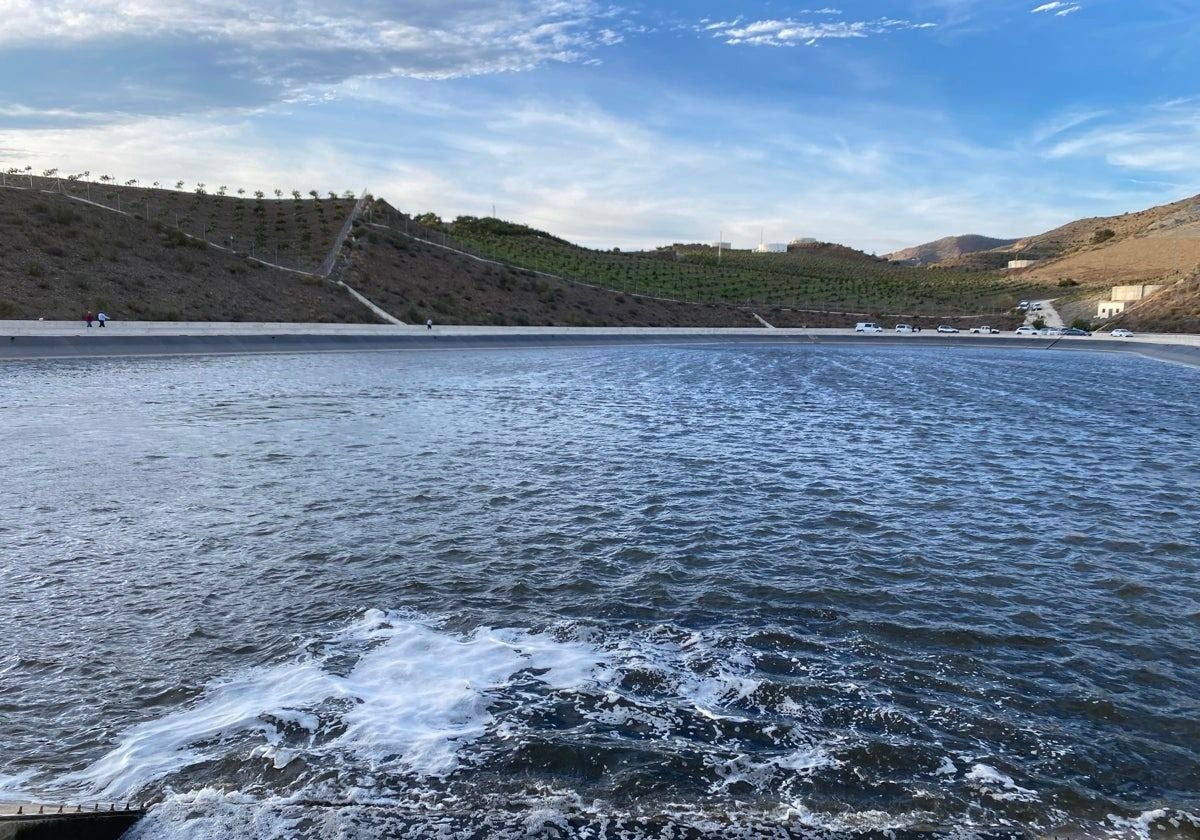Malaga experts look at fertiliser use in regenerated water
The use of reclaimed water for irrigation has been a reality in a large part of the Axarquía since the end of 2021, when the severe drought was already beginning to threaten subtropical and other horticultural crops
Eugenio Cabezas
Monday, 24 February 2025, 16:55
Should less fertiliser be used when irrigating crops with regenerated water? This is the question experts are investigation on the Axarquía, the drought-stricken area to the east of Malaga province which is home to thousands of hectares of subtropical fruit orchards and relies heavily all agriculture as one of its main industries.
The use of reclaimed water for irrigation has been a reality in a large part of the Axarquía since the end of 2021, when the severe drought was already beginning to threaten subtropical and other horticultural crops. However, the sector still has concerns and misgivings about this type of alternative to conventional water resources, as they often produce salinity levels well above what is recommended, which is damaging the farms.
However, with the rain that fell in autumn and so far this winter, the area is recovering a certain amount of life. In any case, and with the prospect of not yet being able to recover the permanent supply from the La Viñuela reservoir for irrigation, another issue that worries and concerns farmers in the Axarquia is how these regenerated water resources affect the use of fertilisers on their crops.
Participants
Now, to answer this key question an experimental research project called ‘Grupo Operativo Axarquía Sostenible’ is under way, which includes the company Bioazul as coordinator, CSIC-IHSM La Mayora research station in Algarrobo, the Trops cooperative and farming communities in the area. As part of this project, a few weeks ago a field visit was organised to the experimental plot in Algarrobo.
The day brought together 25 participants, including farmers, members of irrigation communities, representatives from regional and local governments and professionals from the agricultural sector, to learn first-hand about the advances in the use of reclaimed water in subtropical crops in the Axarquía.
During the event, attendees had the opportunity to discover how innovative techniques are being applied in the irrigation of crops such as avocado, mango, passion fruit and pitaya (dragon fruit), using reclaimed water as an alternative resource. This initiative is part of the operational group 'Axarquia Sostenible' and seeks to optimise the use of water and nutrients, reducing dependence on fertilisers and contributing to the sustainability of the agricultural sector in Malaga province.
Progress
The day began with a tour of the testing area, during which Guillermo Moreno, Trops' research, development and sustainability project manager, presented the progress made so far. "This is a project that focuses on the application of treated water in both established crops and new emerging alternatives, helping to improve water and nutritional efficiency in agriculture,"Bioazul said in a statement.
The manager of the Algarrobo farming community, David Escutia, highlighted the interest of local farmers in deepening their knowledge of the use of reclaimed water in order to be able to apply it on a large scale in the area. Jorge González, a senior technician from the CSIC-IHSM La Mayora, explained the monitoring studies that are being carried out on the behaviour of crops with reclaimed and conventional water.
These studies make it possible to analyse plant growth, fruit production and the monitoring of drainage water, helping to optimise water consumption and the accumulation of nutrients in the substrate, avoiding saturating the farms with fertilisers and fertilisers, which could be counterproductive, according to the experts.
Digital tool
One of the key moments of the visit was the presentation by Rafael Casielles, project manager at Biozul, of a digital tool under development that calculates the optimal amount of fertilisers, taking into account the nutritional contribution of reclaimed water. This technological development is part of the BONEX project and is based on agronomic and ecophysiological studies, which allows irrigation to be managed more efficiently and in accordance with the seasonal needs of the crops.
The project aims to provide a new innovative and transdisciplinary framework (called WEFeF) to develop strategic plans, specific and adapted to different innovative technologies, among others, water reuse with solar energy, agrovoltaic systems and solar irrigation, and to the socio-economic contexts throughout the Mediterranean area.
"This visit was an opportunity to foster collaboration and knowledge exchange between the different local actors, advancing on the path towards a more sustainable and resilient agriculture in the Axarquia," Bioazul said in their statement.
